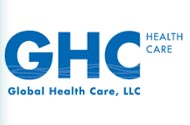
|
THE SEVENTEENTH POPULATION HEALTH COLLOQUIUM
In today's uncertain and volatile climate, the practice of population health
has taken on even more importance. As health care leaders, we understand
the impact of social determinants on our nation's health. The fact that zip
code is a better predictor of health than a person's genetic code is a clear indicator
of the need to create healthier communities. By working to connect the
disparate segments of our fragmented health system we can make progress
toward controlling the cost of care, improving quality and ultimately achieve
better health outcomes.
Population health has been a key component of the ACA, as a means of addressing
these challenging issues. With the legislative shifts promised by the new
President and Congress, it will be important to maintain the focus on practicing
population-based care, as it is critical to establishing better health outcomes,
improving access to care, and managing costs.
The push toward providing healthcare consumers with on-demand, seamlessly
coordinated high-quality care is paving the way for a disruptive, exciting and
eventful time in the industry. The Seventeenth National Population Health
Colloquium has assembled a stellar lineup, including some of the foremost
and visionary thought leaders, to help us navigate through this revolutionary
transition.
This 3-day conference will bring together healthcare providers, payers, the
pharmaceutical industry, leading technology and solutions companies,
academia and government to share best practices, case studies, expert insights
and industry trends.
The Seventeenth National Population Health Colloquium will feature:
- Announcement of the winner of the 2017 Hearst Health Prize for Excellence in Population Health
- A special dinner program on the future of clinically integrated networks
- Three Preconference sessions
- Breakout sessions focused on:
- Developing and Executing a Population Health Strategy
- Using Population Health to Meet Community Needs
- Science, Innovation and Discovery
- Patient Engagement and Communication
- Predictive Analytics and Technology
- Multiple opportunities for networking with peers, including an opening night reception in the exhibit hall
The Jefferson College of Population Health is proud to serve as the Academic Partner for the Colloquium. Population Health is critical to establishing better health outcomes. We are greatly encouraged by the new partnerships and collaborations whose ultimate goal is to improve the health of our population.
We hope you will join us for this exciting program!
WHO SHOULD ATTEND:
- Presidents/Chief Executive Officers/Chief Financial Officers/Chief Operating Officers
- Medical Directors
- Medicare/Medicaid Directors
- Pharmaceutical, Biotechnology and Medical Device Manufacturers
- Managed Care Executives (Medical Directors, Pharmacy Managers)
- Population Health Officers, Directors and Managers
- Directors and Deputy Directors, State Departments of Public Health
- CIOs, CTOs, Vice Presidents and Directors of Information Systems
- Directors and Managers of Programs in Wellness, Prevention and Chronic Disease
- Quality Assurance and Improvement Managers
- Case Managers, Social Workers and Psychologists
- Nurses and Nurse Practitioners
- Directors and Managers of Health and Wellness Plans
- Directors of Disease Management
- Physicians and Physician’s Assistants
- Alternative Medicine Providers
- Pharmacists (retail, chain and convenient care)
- Industry Analysts and Consultants
- Healthcare Sales, Marketing and Development Directors and Managers
- Human and Community Resource Managers
- Innovation and Transformation Officers
PROGRAM OBJECTIVES:
- Identify strategies for the design and implementation of population health programs by hospitals, health plans, and medical groups
- Discuss current and future education initiatives for healthcare leaders, clinicians, boards of governors and others within an organization
- Explain specific successful population health management programs and share best practices
- Provide an overview of challenges facing healthcare today
- Discuss how evidence-based medicine is being used to improve the health care system
- Critically assess current and proposed models of care to improve standardization, facitilitate transitions of care and accountability, and to reduce costs
- Examine the impact of innovative business models on the changing landscape
- Examine the role of analytics, data and technology
|
|

|

